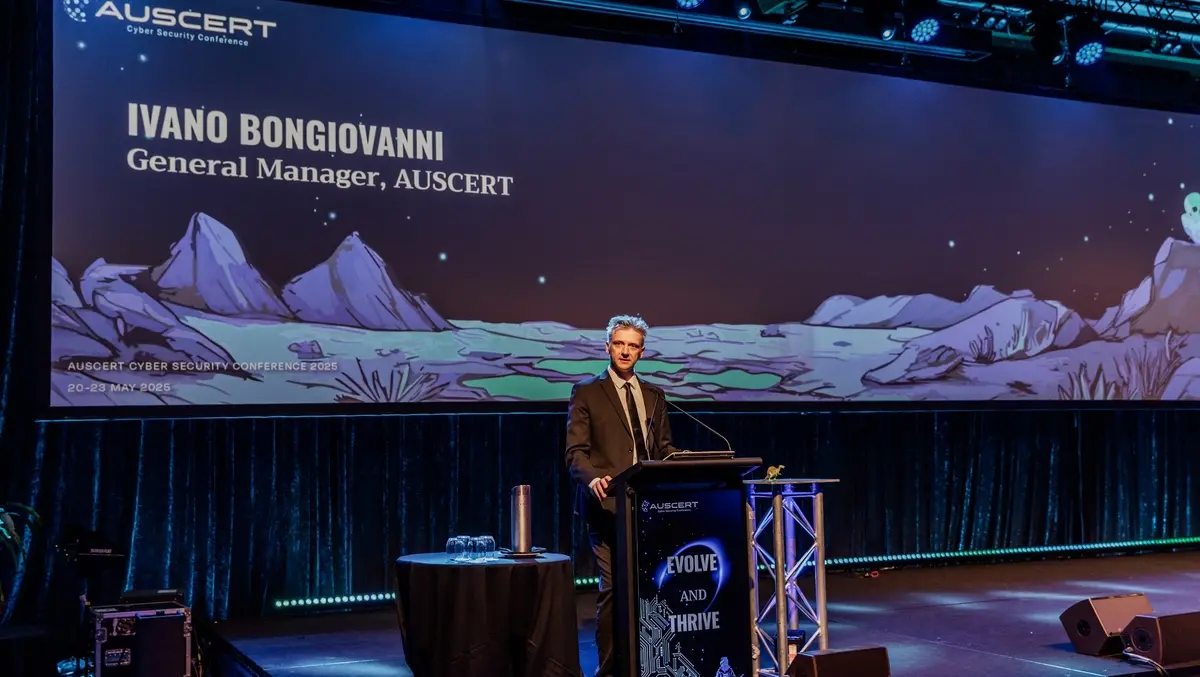
Exclusive: AUSCERT's General Manager on importance of adapting to change
The fast-evolving cybersecurity industry needs professionals who can not only think beyond technical boundaries, but also adapt to change, according to AUSCERT General Manager Ivano Bongiovanni.
Bongiovanni emphasised the need for "all-around professionals" capable of working across disciplines, during this year's AUSCERT Cyber Security Conference on the Gold Coast.
He said it's "particularly more important now", as artificial intelligence begins to redefine traditional roles.
Sitting down with TechDay for an exclusive interview, he explained the need to "look into different ways of developing those sets of skills."
"Especially when I am thinking of entry level professionals, giving that breadth of exposure is very important."
He pointed to models in other industries, such as HR, where junior staff rotate through different departments. "Even if you work in HR, you are in a support function, but it's important for you to know what the business is about," he said. "That initial exposure is important, and I think that applies to cybersecurity as well."
Failing to provide that exposure may not lead to immediate failure, he noted, but it could create rigid, narrowly focused workers.
"You run the risk of having to make adjustments when changes happen," he said. "The more people have been exposed and have been agile... the better it is."
As automation and AI increasingly handle the heavy lifting of data analysis, Bongiovanni said organisations must rethink which skills are essential.
"Understanding how complex systems work, having problem solving skills, having analytical thinking skills - those are going to become more important," he said.
"We don't take enough time and resources to experiment in the workplace."
That spirit of experimentation was behind Bongiovanni's keynote call to "build boldly" and embrace innovation—even within AUSCERT's not-for-profit model.
"We want to stay loyal to our deep foundations," he said. "Being community-based, being global, being rooted in research and development. But that does not mean we need to keep doing things the same way."
The organisation's key innovation focus this year is improving automation for threat intelligence processing. "The struggle that [members] are facing is making sense of all this information and translating it into actionable insights," he said. "We're trying to help them go to actionable insights faster and in a more reliable way."
He noted that the traditional analyst role - sifting through large volumes of threat data—could be one of the first functions impacted by AI. "Consumption and making sense of large amounts of information is probably something where AI and automation are helping us a lot already," he said.
In parallel with these shifts, AUSCERT is stepping up efforts to foster global collaboration and engagement, starting with cyber competitions that draw on the energy and skill of the next generation of professionals.
This year's conference featured a capture-the-flag (CTF) event focused on promoting diversity, particularly encouraging female participation in cybersecurity.
"It's a bit of a smaller scale type of competition this year," said Bongiovanni. "Next year, we're going to run an international cyber competition - pretty much like the Olympics of cybersecurity."
The 2026 event will see teams from around the world gather in person to compete, including groups from Oceania, Europe, the US and Canada. "This competition is coming to Australia, and it's happening at AUSCERT," he said. "We're very excited about that."
The event will be delivered in partnership with the University of Queensland's cybersecurity team, further cementing the connection between education, research and real-world cyber skills.
While the prize for next year's competition is still under discussion, Bongiovanni promised it would be a competitive and high-energy event. "I've seen them running... a lot of Red Bull, a lot of energy drinks for players to keep up their efforts," he said.
Looking ahead, he believes AUSCERT's boldest move will be evolving its own role - not just as a threat intelligence provider, but as an enabler and conversation facilitator.
"We need to become facilitators of conversations within the industry," he said. "But conversations that are really focused on problems and building solutions."
He stressed that the cybersecurity sector must support organisations in achieving their broader goals. "We love to say that cybersecurity is an enabler," he said. "So how can we help cybersecurity teams be enablers for their organisation?"
For Bongiovanni, the answer lies in innovation, collaboration, and empowering professionals to take on broader, more dynamic roles. "There is a space for us to be facilitators," he said. "And it's something I'm really keen on us focusing efforts and resources on."


